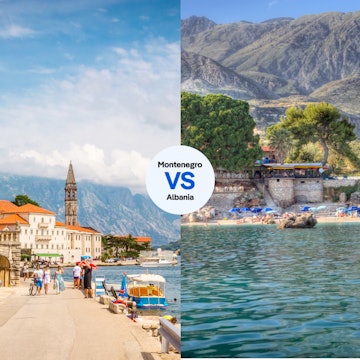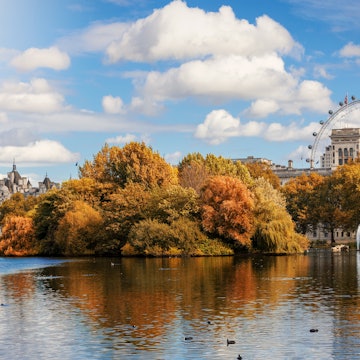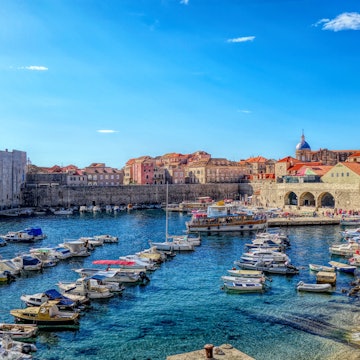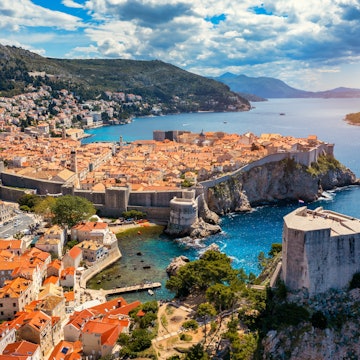

Trg Bana Jelačića, the central city square in Zagreb, Croatia. trabantos/Shutterstock
With its glittering coastline, 1244 islands, endlessly fascinating cities and extraordinarily dramatic landscapes, Croatia has been steadily making its way up people’s must-go lists.
Naturally, tourists are drawn to those beautiful Adriatic beaches that easily hold their own against their Mediterranean rivals. But inland Croatia is just as captivating, from the hilltop villages of Istria to the elegantly buzzing capital, Zagreb.
Don't book your flights just yet though. First, make the most of our planning tips that cover everything you need to know about health, safety and etiquette before you go.
Planning for your trip to Croatia
1. Don’t overstuff your itinerary
It might be tempting to squeeze in as many destinations as possible into one trip, but you won’t be doing yourself any favors unless you’re staying for at least two weeks. If you’re planning to visit more than one Adriatic island, think realistically about how much time you can spend in each place and how you will be getting around.
Check the schedule of the national ferry operator, Jadrolinija, if you intend to do some island-hopping. Croatia has an extensive bus network, but factor in some long journey times if you’re traveling along the Adriatic coast.
2. Croatia's currency is the euro
Although Croatia joined the EU in 2013, the euro was only introduced as the national currency on January 1, 2023. The Croatian kuna is no longer in use, and if you happen to have any of the old currency, you'll need to go to the Croatian National Bank to exchange them.

Etiquette in Croatia
1. Don’t get drunk in public
Croatia has developed a reputation as a place to party, which has led to some areas being inundated with badly behaved drunken tourists. After years of enduring this, the mayor of Hvar Town had enough. In 2017, the destination started to issue fines of up to €700 (US$820) for public drunkenness and things like taking a drunken nap in a public place, such as on a park bench. Split introduced fines of up to €300 (US$352) in 2023, placing signs in the city center reminding people that public drinking is not allowed, and that no one should be urinating on the walls of Diocletian's Palace.
2. Swimwear is for the beach, not the town
If you’re visiting churches and other sacred sites, keep your shoulders covered and avoid bare thighs. If you’re wearing a hat, take it off when you’re in a church. Even though dress codes are relaxed on the coast, Split, Dubrovnik and Hvar have passed laws against walking around the city in swimwear or bare-chested. Croatians like to dress smartly and take great pride in their appearance, so do as they do and avoid looking scruffy.
3. Be tactful when talking about Croatia’s war of independence
The 1990s war that splintered the former Yugoslavia is a topic that needs careful handling. If people show a willingness to talk about it, then by all means ask sensible questions. But don’t be intrusive, and bear in mind that Croatians won’t take too kindly to being called either Yugoslav or Balkan. Similarly, in this predominantly Catholic country, be mindful of making loud statements against religion.
4. Expect to tip at least 10% in restaurants
Croatia’s tipping culture is more laid back than in other countries. Having said that, it’s customary to leave at least 10% in restaurants and for beauty and spa treatments. In bars and cafes, just round up the bill. Tour guides appreciate a few euros at the end of a tour, and taxi drivers don’t expect a tip, but if you want to round up a fare to the next euro, it’s appreciated. If you’re filling up your car and notice a few students cleaning car windshields, consider giving them a couple of euros since they’re working for tips only.
5. Get to know the Croatian character
Croatians can be quite reserved people, sometimes appearing brusque. It’s nothing personal, which you'll realize when you get to know them better, and the initial reserve melts to reveal a warm and friendly side.
Local Flavor: Dubrovnik
Safety in Croatia
1. Croatia is generally considered a safe place to travel
Croatia is a safe country with low levels of violent crime. The most prevalent issue for tourists is pickpocketing, but even that’s on a much lower scale than in other European countries. Solo women travelers should be safe on their own, although it’s wise to ask your accommodation provider if there are any areas in the vicinity that are best avoided. When using taxis, all travelers should make certain they’re using a licensed car either from an official taxi rank or ordered from your hotel. Uber operates in most major towns and cities, including Zagreb, Dubrovnik and Split.
2. Some caution is recommended for LGBTIQ+ travelers
In this relatively conservative country, homosexuality is tolerated, but LGBTIQ+ travelers should be discreet. Public displays of affection could raise a few eyebrows, and some travelers have experienced hostile reactions. Zagreb’s gay scene is growing, however, and both Zagreb and Split hold Gay Pride festivals every June.
3. You can drink the tap water
Tap water in Croatia is perfectly safe and very drinkable, and you can refill your reusable water bottles at public drinking fountains.
4. Keep your lights on if driving during winter months
If you’re driving in Croatia from November to April, it’s compulsory to have your lights on during daylight hours as well as at night.
5. Croatia has occasional earthquakes
Croatia has a history of earthquakes going back centuries, but two recent ones in 2020 caused significant damage. The quake that shook Zagreb damaged thousands of buildings, many of which are in the old town, including the cathedral. Soon after, the city of Petrinja, about an hour’s drive south of Zagreb, was severely damaged in a quake, and aftershocks rippled throughout the region. If an earthquake happens while you're there, follow local guidance.
6. There are still some landmines
There are still parts of the country in the hinterlands of Northern Dalmatia and Lika where landmines remain from the war of independence, but these will be signposted with a skull and crossbones symbol. Don’t go anywhere near them.
7. Take out travel insurance
Dial 112 for general emergencies, 192 for police, and 194 for an ambulance. If you fall ill in Croatia and you're an EU citizen with a European Health Insurance Card (EHIC) or a UK citizen with a Global Health Insurance Card, you’re entitled to a vastly reduced price for health care. But even with this cover, you should still take out travel insurance.
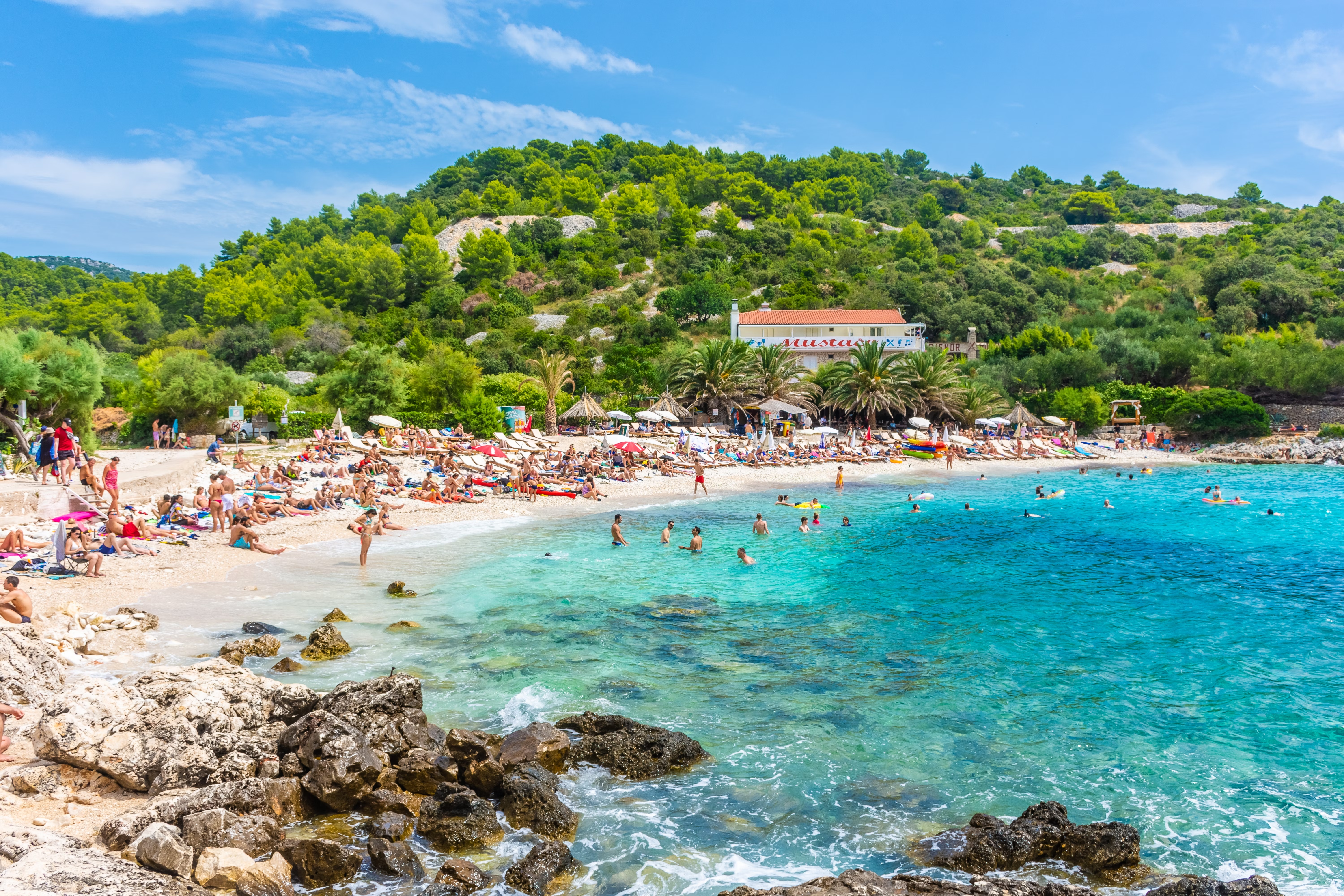
Beaches in Croatia
1. Bring some swimming shoes
Most of Croatia’s beaches are pebbly or rocky and can be hard to enjoy in bare feet. Just pick up a pair of those neoprene or plastic swimming shoes you see in all the resorts, and you’ll also be protecting your feet from sea urchins that lurk under rocks and pebbles.
2. Nudity at the beach is pretty standard
Naturist beaches are popular in Croatia, and sometimes you won’t know you’re on one until people start undressing. Most are marked with FKK – the German phrase “Frei-Körper-Kultur,” meaning free body culture – which isn't surprising as Germans make up some of the biggest numbers of tourists in Croatia. Away from the FKK beaches, topless bathing is quite common.

Visiting popular Croatian cities
1. Dodge the crowds in Dubrovnik by timing your visit carefully
There could be times when up to 8000 cruise ship passengers might descend on Dubrovnik in one day. That’s the cue to stay away from the Old Town within the city walls until they leave in the late afternoon. Keep an eye on the Dubrovnik Port Authority’s website for cruise arrivals and the online crowd monitoring system that predicts the numbers of visitors.
Data plans in Croatia
1. Wi-fi is readily available
Croatia is part of EU roaming, which is handy if you have a contract that allows you to use your data abroad. It’s easy to find wi-fi in cafes and bars – just ask the server for the password (šifra).









